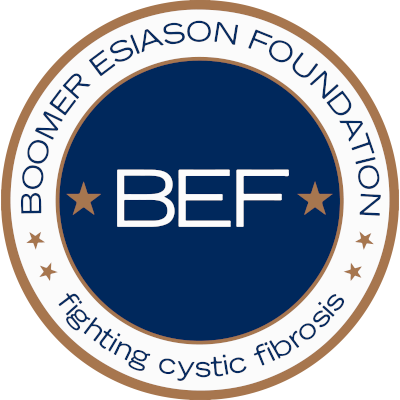Mpex Pharmaceuticals, Inc. today announced the presentation of data from its Phase 2b clinical trial with Aeroquin™ (a proprietary aerosol formulation of levofloxacin, MP-376) in cystic fibrosis (CF) at the American Thoracic Society (ATS) Annual Meeting in New Orleans. Trial results demonstrated statistically significant improvements in bacterial load, respiratory function and time to need for anti-pseudomonal antibiotics (a measure of exacerbations) versus placebo in a heavily treated patient population. The results were presented by Dr. Douglas Conrad from the University of California at San Diego School of Medicine, the principal investigator for the study.
The Phase 2b, multi-center randomized, double-blind, placebo-controlled trial (Mpex 204) studied 151 CF patients to evaluate the safety, tolerability and efficacy of three dose levels of inhaled Aeroquin (120mg QD, 240 mg QD and 240 mg BID) administered for 28 days using an customized investigational eFlow® Nebulizer System (PARI Pharma GmbH). Patients were then followed for an additional 28 days after completion of dosing. The trial was conducted in the U.S., Germany and the Netherlands.
To ensure that results from this trial were as predictive as possible for the future Phase 3 program and consistent with current clinical practice, the study enrolled patients that had recently received multiple courses of inhaled antibiotics and in most cases were receiving concomitant medication such as dornase alpha, azithromycin and hypertonic saline that have been shown in previous studies to improve lung function and/or reduce exacerbations.
The trial met the primary endpoint of a reduction in sputum Pseudomonas aeruginosa density at Day 28, the end of treatment. All three doses of Aeroquin demonstrated statistical significance (p < 0.01 for each group versus placebo), with the highest dose (240 mg BID) showing the greatest effect of approximately 1 log reduction. There was no evidence for emergence of bacterial resistance during the study.
Improvements in respiratory function were also demonstrated in the trial. A greater proportion of patients had improvement in percent predicted FEV1 with any dose of Aeroquin compared to placebo, with a difference of 10.9% in percent predicted FEV1 between the 240mg BID group and placebo at day 28 (p=0.0008). Patients treated with 240 mg BID also had a 22% improvement in FEF25-75 (p<0.0001) and a 7.3% improvement in percent predicted FVC (p=0.014) at day 28 versus placebo. FEV1, FEF25-75 and FVC are standard measures of lung function in CF patients.
Consistent with these results, a statistically significant reduction in the need for other inhaled and/or systemic anti-pseudomonal antimicrobials was observed in all Aeroquin groups vs. placebo (risk reduction of 79% for 240mg BID vs. placebo; p=0.0007). The percent of patients with adverse events (AEs) was similar across all treatment groups, with no evidence of increasing incidence or severity of AEs with increasing Aeroquin dose.
“The results from the Aeroquin Phase 2b CF trial are very encouraging both in terms of the improvement in lung function and the reduction in the need for other anti-pseudomonal antimicrobials,” stated Dr. Conrad. “The combination of these outcomes with an attractive safety profile to date and a convenient dosing regimen makes Aeroquin a potentially important new agent. These results were especially impressive because they were obtained in a heavily treated patient population, where demonstrating benefit can be more difficult.”
“I am impressed with both the strength and quality of the data from this Aeroquin trial”, stated Dr. Patrick Flume, Professor of Medicine and Pediatrics at the Medical University of South Carolina and Co-Chair of the Pulmonary Guidelines Committee of the Cystic Fibrosis Foundation. “Importantly, Aeroquin represents a new class of inhaled antibiotics for the treatment of CF. If we are to achieve our treatment objective of reducing bacterial exacerbations over the long term, it is critical that chronically infected patients be treated frequently with inhaled antibiotics. Having multiple classes of aerosol antibiotics available will give clinicians the ability to rotate classes and tailor treatment to the needs of each individual patient. Clinicians believe this is the best way to maximize efficacy and tolerability while minimizing resistance and side effects over the long term.”
Mpex has been cleared to proceed to Phase 3 trials with Aeroquin by the U.S. FDA and is scheduled to meet with European regulatory authorities later this quarter. Phase 3 studies are expected to begin shortly thereafter.
Mpex Pharmaceuticals Inc.
